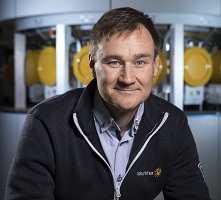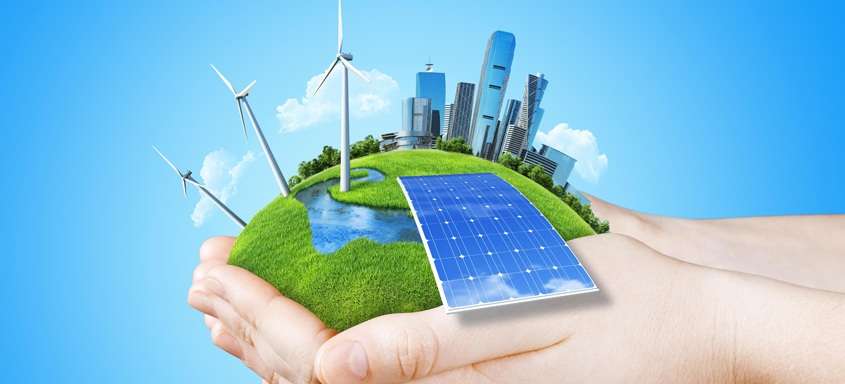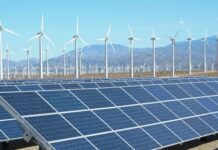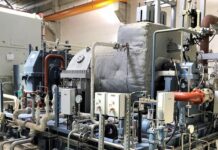As we move into a new year. Sven Lindström, CEO of Swedish solar energy technology leader Midsummer, gives us his insights as to what new trends we can we expect from the solar and renewable energy sectors in the new year:
Volatile energy prices
The turbulence in electricity markets will continue from 2021 and well into the new year. It does have some geopolitical reasons, but the truth is that it is also a sign of a changing energy environment. And it is a good one!
We have powered the last centuries of economic development largely with fossil fuels. To re-build this infrastructure to renewable; will have to cost. The increase in cost signals that energy and especially electrical energy is a scarce resource, and it should have a high price. This will drive development faster and it is necessary, and we should have a sense of urgency. Instead of absorbing half of consumers’ electricity increase (like the Norwegian government announced), it would be better to absorb half of people’s investment in renewable energy, energy conservation measures etc.
Money-printing and inflation
Finally, inflation is here! But probably short lived. Central banks have printed money like never before. They have managed to counter a recession, but they have not been so successful in money allocation. Income gaps have widened and people with assets like real estate and stocks have become wealthier. But little has trickled down to the masses and to renewable energy investments.
But even the wealthiest can have enough. They now realize that to enjoy a livable planet, we need to invest more in renewable energy. Signals from EU and US tells me that 2022 is when more of the newly printed money will go towards renewable energy – creating good inflation!
The year of the off shore Mega turbines
Siemens-Gamesa recently started supplying energy from its whopping 222-meter rotor outside of Denmark. Both General Electric, Vestas and China’s MingYang Smart Energy have similar models with rotor blades more than 100 meters long, sweeping over 40,000 sqm (4 hectares!) and generating 15MW.
As wind power in general struggle with “not in my back yard” these behemoths move off shore. The bigger the better it seems, as the torque delivered from long rotor blades is driving the development of these giants. Well, the bigger the slower they rotate and that I appreciate!
Rooftop PV
Completely opposite from wind moving off shore and away from people is the development of photovoltaics (PV). It is moving closer to home. Instead of large-scale solar parks in remote locations, it has been understood that the best utilization of this energy is to produce electricity where it is consumed, on roof-tops. Replacing an old roof with a new solar roof is such a no-brainer today that it should be illegal to do otherwise. Governments love to create regulations about pretty much everything, so why not binding laws about installing solar roofs (I’ll take huge subsidies as well)?
The newly elected German government announced plans to reach 200 GW installed capacity in Germany by 2030 – mostly on roof-tops! Installations from current levels need to treble in order to achieve that. And it will happen! By producing the electricity where it is consumed, the grid is relieved from congestions and limited transferal capacity. For the grid operator it will merely seem like electricity consumption is decreased! It is also worth a lot more for the tenant as electricity fees and taxes are countered by electricity production that is consumed before it passes the meter. A recent study from the small country of Belgium concluded that they have 100 GW of roof top potential. What is the potential in Spain and Italy?
Some things don’t change
One of the constants in physics is the number of years until fusion energy becomes commercially available. It is 50 years now and it has been so in the past. It will not change! I rather believe in small scale reactors and hopefully new technologies that enables us to use nuclear waste as an energy source (today’s reactors have a surprisingly low yield, causing enormous amount of long-lived nuclear waste).
However, these technologies do not exist today. There is a good reason to spend a lot of research on these technologies, we should never be afraid of new knowledge, but it will not add any appreciable capacity in the near future. To build new electricity capacity fast, we must choose either renewable sources like PV and wind or carbon-based fossil fuels. What do you prefer?
Energy need will INCREASE
The world’s energy need increases constantly. It will increase even more, non-linear! In order to do all the investments needed to de-carbonize our society and our electricity production, we will need to consume even more energy. That together with the growing economies will require even more energy. It sounds like a bad spiral, but if we use the most energy efficient methods of building and producing it, we can and will make it. The same goes for electricity. With the electrification of the transport sector, new industrial investments and de-carbonization of house heating, electricity demand will increase non-linear.
Omicron
Finally, I can’t predict 2022 without mentioning the omicron virus. I see omicron as the light at the end of the tunnel and the way out of the pandemic. Most people see omicron as an approaching train in the tunnel. The virus mutated into something that go through three doses of vaccine like a warm knife through butter. Scary in many ways, but hopefully this virus is less deadly than delta.
That would mean that it might be the way out of lockdowns if we have a version that is very contagious and less deadly. Like the seasonal flue. Let’s hope for the best! Maybe it will even give researchers new ideas? Is it beneficial to mutate less severe virus versions that spread themselves to create heard immunity? Would this be more efficient than delivering vaccines? Time will tell. Until then: Stay safe and have a prosperous 2022!

About Sven Lindström, CEO, Midsummer
Sven Lindström is co-founder and CEO of Midsummer, a Swedish solar energy company that develops and markets equipment for the production of thin film solar cells and also manufactures, sells and installs solar roofs. Mr. Lindström has over 20 years of experience from international business and development of high-tech production equipment, including advanced solar energy solutions.




































